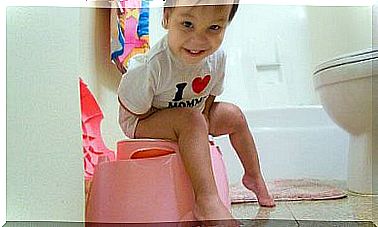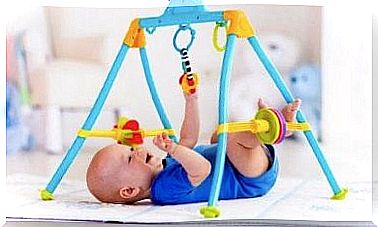Eczema In Children: How Do You Prevent Outbreaks?
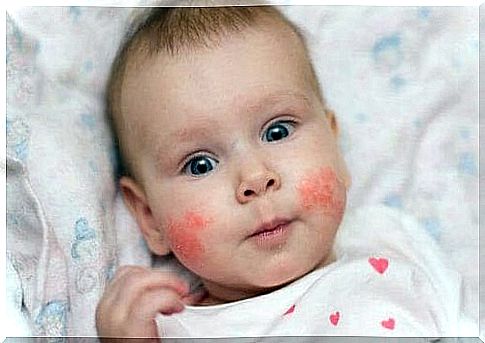
Eczema is a skin condition that affects about 20% of children in their first years of life. So it is a very common disease that lasts for several years and disappears as they grow. Read below how to prevent outbreaks of eczema in children.
Recognizing Eczema in Children
1. Symptoms
You can identify eczema by redness on the skin, itching, pain, swelling, and pus in the affected area, among other symptoms. Identifying the start of an outbreak and then applying special creams can prevent symptoms from getting worse.
2. Age it appears
This condition affects all skin types and usually occurs at a very young age. However, it looks different in babies and children. In addition, it mainly affects the face, head, hands and the folds of elbows and knees.
The health portal Integral Pediatrics explains: “In 60% of patients it starts in the first year of life, mainly in the first 6 months. 85% develop the condition during the first 5 years and only 10% after 7 years. ”
Therefore, it often occurs in babies after 3 or 4 months. The skin problems then usually appear on their cheeks, head and extremities. Some moms confuse diaper rash with eczema. However, eczema does not occur in areas that are constantly wet.
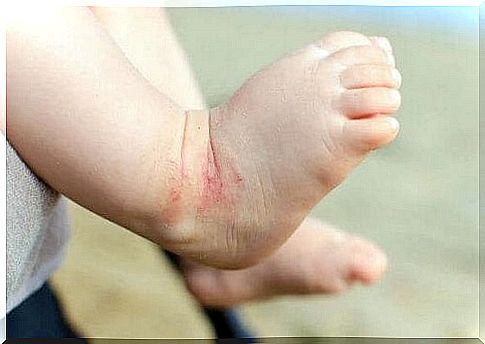
In childhood, it can appear after 2 years where you see it on the neck, hands, ankles, elbows and buttocks. In Caucasian children, a rash usually appears in the skin folds. However, in children of Asian and African descent, it usually appears on the elbows and knees.
How eczema occurs in the different stages
Eczema has 2 phases:
- Inactive. The skin becomes very dry and flaky, as well as sensitive. During this time, you can take preventive measures to prevent it from getting worse. As we mentioned before; keep the affected area hydrated with special creams and moisturizers.
- Active. Inflammation is more intense and pus and bleeding from scratching is common. In addition, the skin can become inflamed and harden.
How to prevent eczema outbreaks in children
Triggers for Eczema in Children
To prevent outbreaks of eczema, it is important to know what is causing it. So let’s start by saying that this disease is not contagious.
Returning to the Integral Pediatrics health portal, they point out that “70-80% of children have a family or personal history of skin conditions.” That is why it is important to take genetic factors into account.
Factors that contribute to eczema in children include:
- Dry skin.
- Use of creams with chemicals that cause irritation.
- Herpes and fungi.
- Contact with allergens, pollen, dust, animal hair, food poisoning, etc.
- Contact with fabrics washed with abrasive detergents and synthetic fabrics such as nylon, wool or viscose.
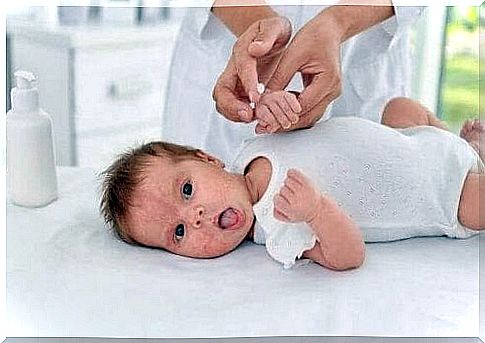
Prevention Strategies
Today, you can use corticosteroids and antibiotics to control outbreaks of eczema in children. However, the doctor will determine the causes of the eczema in your child and choose the best option for him.
Here are some actions aimed at preventing symptoms:
- First, check the temperature: avoid excessive heat.
- Maintain significant humidity in the room where your child is.
- Have short, refreshing baths to stop sweating, with water that is not too hot.
- Take a bath with acidic pH soap without detergent.
- Pat dry without rubbing to avoid irritation.
- Avoid clothing made of irritating material.
- Apply moisturizer daily .
- In addition, prevent wounds by trimming your child ‘s nails properly.
- Avoid swimming in pools because of the high amount of chlorine they contain.
The Spanish Pediatric Association also recommends the following measures: “Reduce contact with acidic foods (tomatoes, citrus fruits, etc.). Change diapers regularly and be careful when washing clothes.”
Remember that if you are concerned, you should always consult your doctor or dermatologist. That way, you’ll get the proper guidance you need to address your child’s needs.



